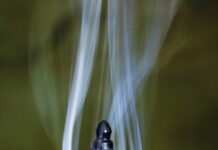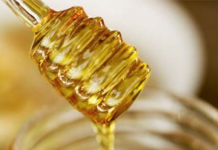
Just like the overuse of antibiotics, common disinfectants found in household disinfectant sprays, sponges, and soaps may contribute to the creation of drug-resistant bacteria. This is according to researchers at Tufts New England Medical Center. Stuart Levy, MD, of the Tufts research group, notes that disinfectants aren’t much different than over-the-counter antibiotics. The problem is that when a chemical kills off bacteria, the bacteria grows a resistant strain that is harder to kill.
Research at the Government Account Office shows that many commercial disinfectants are ineffective. Soap and water are all you need to kill germs.
Many essential oils, like lavender and thyme, are more antiseptic than phenol, the industry standard germ-killing ingredient. (Link for Annie’s DIY Lavender Spray)
Although it doesn’t have a 99.9 percent kill rate like hospital grade disinfectants, vinegar kills germs, bacteria, and molds. Another way to enhance vinegar is to combine it with antiseptic herbs, such as is found in the famous Vinegar of the Four Thieves.
Seventh Generation has a “wet wipe” disinfecting product that kills 99.9 percent of germs botanically. The active ingredient is thymol. It even kills influenza A virus. It is also suitable for use on all hard, nonporous surfaces where bacteria or unpleasant odors are a concern, including appliances, highchairs, etc.





[…] Link here for the answer to Green Quest #1: About Disinfectants […]
Comments are closed.